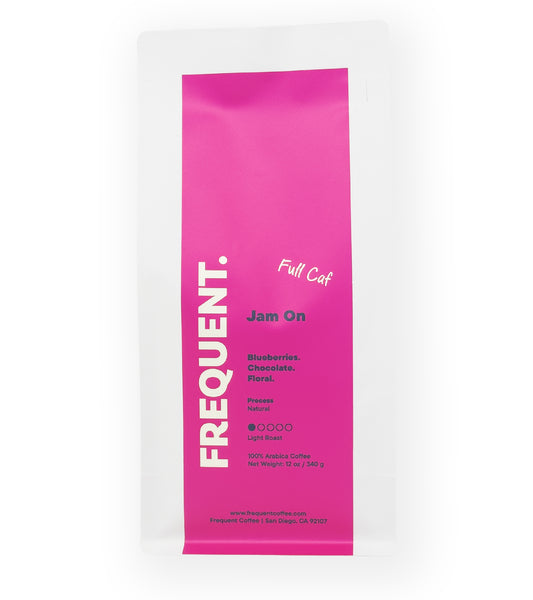Collection: Ethiopian Coffee
-
Jam On | Full Caf
Regular price From $23.00 USDRegular price
Why Choose Ethiopian Coffee
Ethiopian coffee is prized for its wide range of flavor profiles, from citrus and berry to jasmine and honey. The country’s diverse growing regions and traditional processing methods create some of the most unique coffees in the world. Choosing Ethiopian coffee means experiencing lively acidity, aromatic depth, and a taste of coffee heritage in every sip.
Flavor That Stays True to Its Origin
Depending on the region, Ethiopian coffees can vary from fruity and wine-like to tea-like and floral. Natural processed coffees often emphasize berry sweetness and heavier body, while washed coffees highlight crisp citrus and delicate florals. Each cup reflects Ethiopia’s rich tradition and remarkable terroir, offering flavors that are unmistakably distinct.
Brewing Tips for Ethiopian Coffee
Ethiopian coffee shines in brewing methods that highlight clarity and nuance. Pour over or Chemex accentuate floral and citrus notes with a clean finish. Aeropress allows experimentation with shorter or longer brews to emphasize sweetness. Drip brewing creates a bright, balanced cup, while espresso reveals concentrated fruit-forward intensity. To bring out the best, use fresh grinding and filtered water just below boiling.
Frequently Asked Questions
What makes Ethiopian coffee unique?
Ethiopian coffee is unique because of its terroir, diverse growing regions, and traditional processing. It often features bright fruit and floral notes that stand out from coffees grown elsewhere.
Is Ethiopian coffee always fruity?
While many Ethiopian coffees are fruity, they can also be floral, tea-like, or honey-sweet depending on the region and processing method. Not all Ethiopian coffees taste the same.
What brewing methods work best for Ethiopian coffee?
Pour over and Chemex are particularly good for Ethiopian coffee, as they highlight clarity and brightness. It can also be brewed as espresso or French press for a bolder take.
Does Ethiopian coffee have more caffeine than other coffees?
Ethiopian coffee has a similar caffeine content to other arabica coffees. The difference in taste comes from origin and processing, not caffeine levels.

